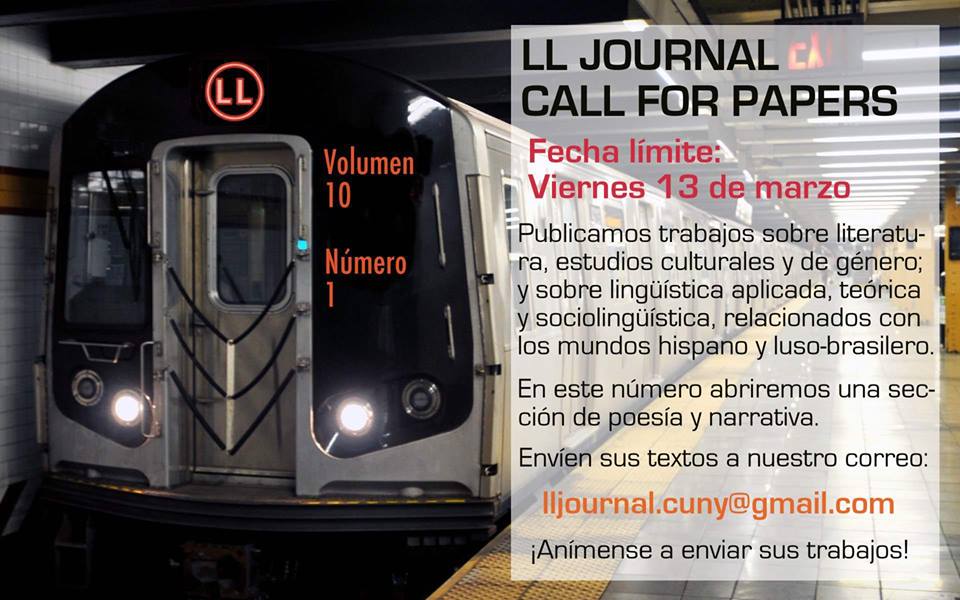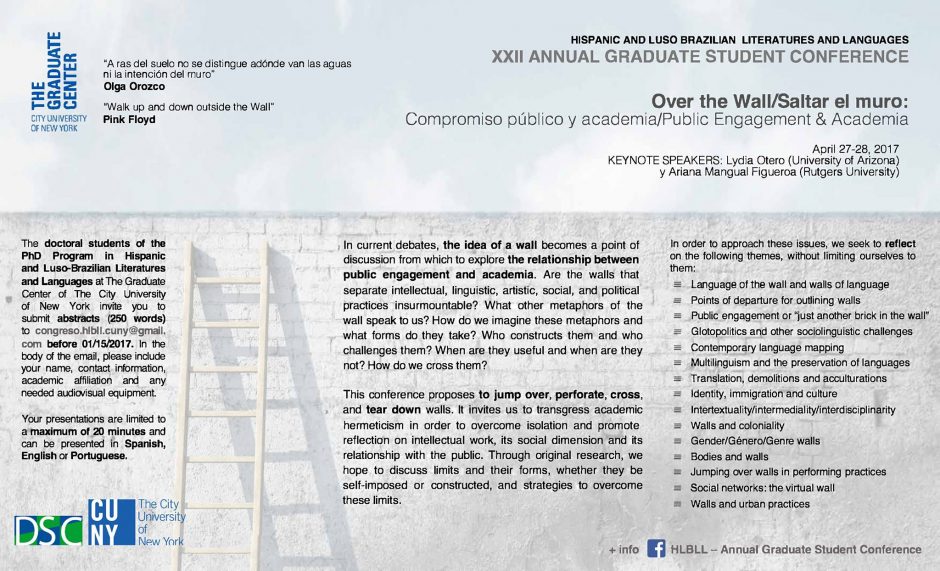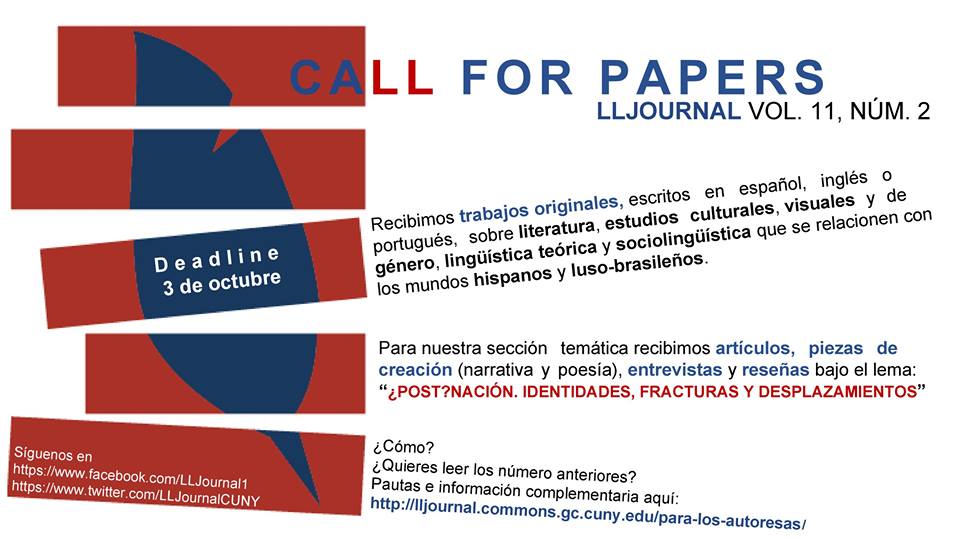ACLS Public Fellows Competition for Recent PhDs
Fellowship Details
Stipend: $65,000 per year, with health insurance coverage for the fellow, and up to $3,000 in professional development funds over the course of the fellowship
Tenure: Two years; start date on August 1 or September 1, 2016, depending on the position
Application deadline: March 24, 2016, 8 pm EDT. Notification of application status will occur by email starting late-May 2016. Applications will be accepted only through the ACLS Online Fellowship Application system (ofa.acls.org). The system will open on January 14, 2016. Please do not contact any of the organizations directly.
Read an interview with a Graduate Center Alumna from Political Science who was a 2013 ACLS Fellow.
Find out more about the ACLS Public Fellows Competition on their website. Fellowship application assistance can be provided by the Office of Career Planning and Professional Development.
The information below was provided through the Office of Career Planning and Professional Development:
ACLS invites applications for the sixth competition of the Public Fellows program. This year, the program will place up to 21 recent PhDs from the humanities and humanistic social sciences in two-year staff positions at partnering organizations in government and the nonprofit sector. Fellows will participate in the substantive work of these organizations and receive professional mentoring. Fellows receive a stipend of $65,000 per year, with individual health insurance and up to $3,000 to be used toward professional development activities over the course of the fellowship term.
This initiative, made possible by a grant from The Andrew W. Mellon Foundation, aims to expand the role of doctoral education in the United States by demonstrating that the capacities developed in the advanced study of the humanities have wide application, both within and beyond the academy. The ACLS Public Fellows program allows PhDs to gain valuable, career-building experience in fields such as public policy, development, conservation, arts and culture, and digital media.
ACLS seeks applications from recent PhDs who aspire to careers in administration, management, and public service by choice rather than circumstance. Competitive applicants will have been successful in both academic and extra-academic experiences.
Applicants must:
- possess US citizenship or permanent resident status;
- have a PhD in the humanities or humanistic social sciences (see note on eligible fields below) conferred between January 1, 2013 and June 12, 2016;
- have defended and deposited their dissertations no later than the application deadline of March 24, 2016; and
- not have applied to any other ACLS fellowship programs in the 2015-16 competition year (excluding the ACLS Digital Extension Grant program).
Prospective applicants should read through all the positions listed below and choose the one position that best fits their career goals. (Applicants may apply to only one position.)
The deadline for submitted applications is Thursday, March 24, 2016, 8 pm EDT.
Applications must include:
- completed application form,
- 1-2-page cover letter tailored to a specific position,
- 1-2-page resume,
- 1-page candidate statement, and
- 2 reference letters
Please note that finalists may be asked to provide institutional documentation of PhD conferral (or, if the degree has not yet been conferred, an institutional statement from the registrar attesting that the dissertation defense and deposit have been completed and confirming the degree conferral date).
Only complete applications, submitted through the ACLS Online Fellowship Application system by the deadline, will be considered.
Selection Criteria
Applications will undergo ACLS’s standard rigorous peer-review process, which may include interviews by ACLS and by the hosting organization. Reviewers will look for:
- applicant’s academic accomplishment and success,
- demonstrated relationship between past experience and specified position, and
- commitment to pursuing a career in the public and/or nonprofit sector.
Notification of application status will occur by email in late-May 2016.
Participating Agencies and Positions:
American Friends Service Committee – Communications Analyst
American Public Media Group – Senior Research Analyst, Engagement & Inclusion
Center for Genetics and Society – Project Director on Race, Genetics, and Society
Center for Investigative Reporting – Membership Engagement Manager
City of Atlanta, City Auditor’s Office – Senior Performance Auditor
Chicago Humanities Festival – Digital Programming Strategist
Grand St. Settlement – Community Engagement & Policy Advocate
International Rescue Committee – Impact Evaluation Advisor
Los Angeles County Museum of Art – Digital Content Specialist
Los Angeles County Museum of Art – Executive Communications Specialist
National Park Service – Cultural Resources Public Outreach Coordinator
National Partnership for Women & Families – Workplace Programs Federal Policy Analyst
Philanthropy Northwest – Communities of Practice Manager
Ploughshares Fund – Political Engagement Strategist
Pulitzer Center on Crisis Reporting – Education Specialist
Rare – Global Philanthropy Specialist
Reinvestment Fund – Policy Analyst
Smithsonian Enterprises – Business Development Associate
Smithsonian Provenance Research Initiative – Program Manager, Scholarly and Public Engagement
Southern Poverty Law Center – Research and Investigations Specialist
The Texas Tribune – Research Analyst




